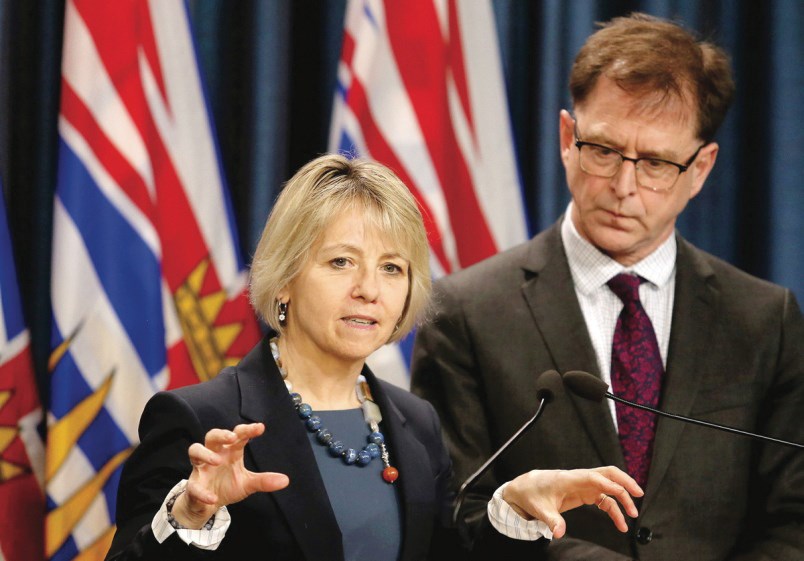Provincial health officer Dr. Bonnie Henry stuck to her guns this week and refused to tell us whether the Sunshine Coast was COVID-19 free or whether it was one of the locations among the 30-odd cases detected in the sprawling Vancouver Coastal Health region, which also includes Vancouver, North and West Vancouver, Richmond, Sea-to-Sky Country and the Central Coast.
“Anyone who may be at risk of exposure to COVID-19 gets contacted by public health officials who are supporting the cases and their close contacts,” Dr. Henry said in an emailed statement to Coast Reporter late Wednesday. “We will not be identifying the specific location of confirmed cases unless public health providers cannot be certain they have contacted all those who need to be contacted and who therefore might be a risk to the public.”
Privacy is a big part of it, she added: “We want people who have symptoms to contact us, and to feel safe contacting us, knowing their privacy will be protected, so the steps to protect the health and safety for all can be taken. This is why privacy is important to everyone. It allows public health providers to do the work they need to do to keep everybody safe.”
Whether you agree with that rationale or not (and frankly, we’re not convinced that it’s the right approach to take, as more information for the public is better than less), the upshot is that we don’t know if there has been a COVID-19 case on the Sunshine Coast. The fact that School District No. 46 has not been advised of any confirmed cases suggests to us that there haven’t been any, but we can’t say that with certainty.
Either way, of course, there could be undetected cases and so vigilance is essential.
We should all be following the now familiar hand washing and coughing-and-sneezing protocols, avoiding hugs and handshakes, and, most importantly, we should not be going out in public if we feel unwell. Whether to attend gatherings remains a matter of individual risk assessment, and we are already hearing about event organizers creating greater seating distances or considering cancellations.
In her daily briefing with the health minister on Wednesday, Dr. Henry stressed the importance of looking after our most vulnerable demographic – the elderly.
An analysis of case data from China shows the fatality rate at zero for children nine and under, 0.2 per cent for those aged 10 to 39, 0.4 for people in their forties, 1.3 for those in their fifties and 3.6 for those in their sixties.
Then it really jumps – to an eight per cent fatality rate for people in their seventies and 14.8 per cent for those over 80 who were infected.
“China bought us time… We know the people that are most at risk,” Dr. Henry said at the briefing. She urged British Columbians to think about ways they can help the elderly in their lives get through this pandemic. It could mean offering to do their grocery shopping or supporting them in the decision not to go to church services – and crucially, to avoid being around them if you are feeling even slightly ill.
“This is not forever,” she said. “This is for the coming weeks. The coming weeks where we know we have to do everything we can to prevent transmission of infection in our communities, protect those people that are more likely to have severe illness, and particularly our seniors and elders.”
Let’s listen to the doctor and do what we can for those who most need it.



